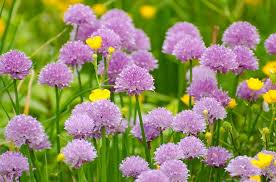 As a little girl, I noticed that every time my mother got pissed off at my dad, she would head out the back door, snarling to herself like a wet cat. An hour or so later she would return, purring quietly under her breath as if nothing had happened. For a while I suspected she had a bottle hidden out there, but after spying from an upstairs window I discovered what she was up to; she’d been digging in the garden, probably picturing my father’s head with every stab of the spade.
As a little girl, I noticed that every time my mother got pissed off at my dad, she would head out the back door, snarling to herself like a wet cat. An hour or so later she would return, purring quietly under her breath as if nothing had happened. For a while I suspected she had a bottle hidden out there, but after spying from an upstairs window I discovered what she was up to; she’d been digging in the garden, probably picturing my father’s head with every stab of the spade.
Mom was smarter than she realized. Those who are fond of gardening will tell you that there is a peace to be found in those earthy, fertile furrows that can be found nowhere else outside of, perhaps, a child’s sand box. Digging in the dirt has a near magical effect. It can lower blood pressure, relieve stress and even speed recovery time in healing.
How can something as seemingly ordinary as gardening have such a profound effect on humans? OK, this is going to blow your mind. Along with the more obvious reasons — the serenity, the beauty of nature, blah, blah, blah — there is actually a microbe in the soil that mirrors the effect of drugs like Prozac when inhaled or ingested, making people happier and more relaxed. Talk about universal medicine! Mycobacterium vaccae is, literally, as common as dirt and it can stimulate serotonin production just like the pharmaceuticals, without costing a cent. It would be fair to say that gardening was the earliest form of psychiatric medicine.
In the 1800s, even science began to notice this effect. Dr. Benjamin Rush, considered by many to be the father of modern psychiatry, was intrigued to find that clients with mental illness benefited immensely from field labor in a farm setting. This discovery opened the door to a new approach to health — many western hospitals began looking at horticulture as a means for treating patients with psychiatric and developmental disabilities. Michigan State University offered the first degree in horticultural therapy in the 1950s and Kansas State University followed in 1972, creating a program that trained students in both psychology and horticulture.
There is an eerie resemblance between the act of gardening and meditation. One reason that tilling the soil may be so successful at stress reduction is that it bypasses the analytical processes of the mind, putting people into a near trance-like state. Studies are currently underway to follow research subjects who submit themselves to a combination of gardening activity and MRIs over a period of months. Preliminary findings show that gardening may have a more profound effect on brain activity than we ever imagined.
The health benefits of greenery do not stop at the head. In 1984, Roger S. Ulrich, a pioneer in the field of therapeutic environments at Texas A&M University, found that patients who viewed landscapes from their beds had less anxiety, needed less pain medication, and were released a day earlier than patients looking out onto brick walls. At NYU Langone Medical Center’s Rusk Institute of Rehabilitation Medicine, a therapy garden is used to help patients regain mobility after surgery or a stroke. Harvard naturalist and Pulitzer Prize winner Edward O. Wilson goes so far as to say that nature holds the key to human health. It is something we too often forget, encased as we are in concrete and glass, staring down at our devices — we are part of the natural world. If we can connect to it, Mother Earth can help restore us.
The garden keeps on giving. There is nothing more satisfying, or healing, than cultivating and consuming your own herbs and vegetables. Communing with nature and growing fresh organic foods can be as rejuvenating as a week at the spa. Dr. Marcy Feibelman, president of the RI Association of Naturopathic Physicians (RIANP), believes that “food is medicine. Treating the whole person is an important part of our philosophy.” There is even a link at RIANP.org with tips for starting your own garden. Just click on the Food as Medicine tab.
While you are at the website, use the link on the main page to contact your local representative and senator in support of House bill H5380 and Senate bill S0331. This important legislative move, currently under discussion, would allow the licensing of naturopathic physicians in RI and open the door for a better quality of natural medicine in our state, along with increased opportunities for job growth and economic development.
A final note: According to a survey by Gardeners’ World magazine, 80% of gardeners reported being happy and satisfied with their lives, compared to 67% of non-gardeners. If you are looking for a natural and affordable way to improve the quality of your life, you couldn’t make a better choice than gardening.